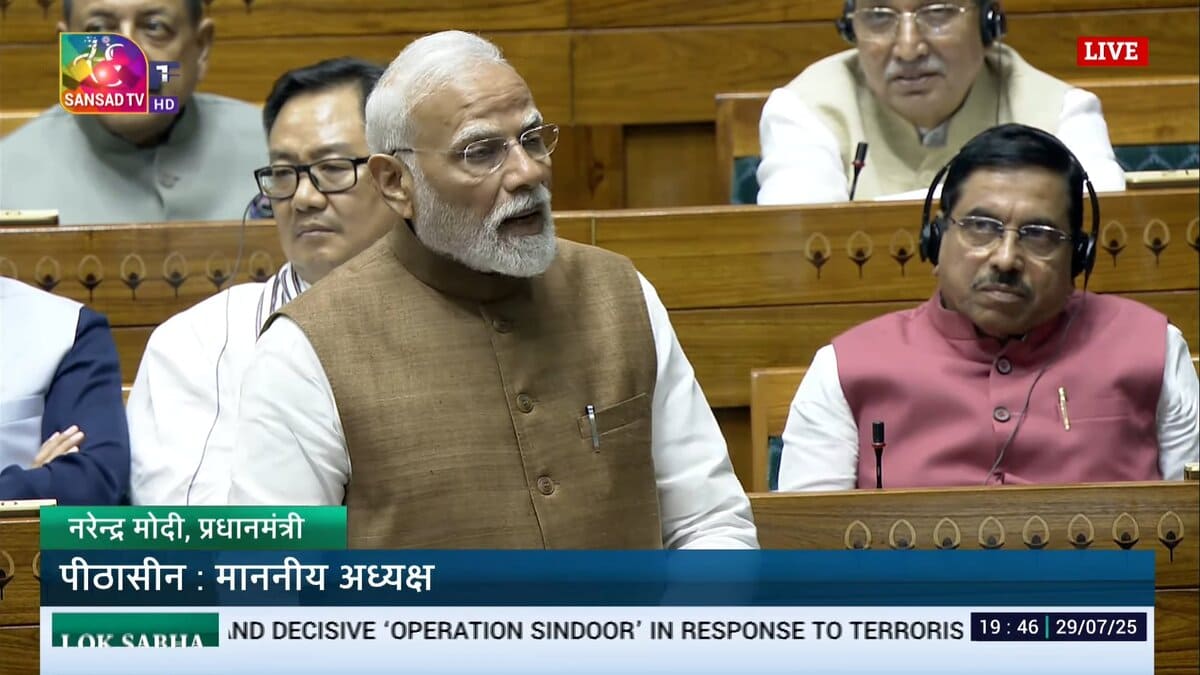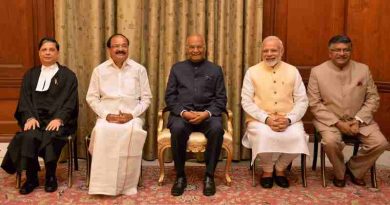Unraveling Modi’s Pahalgam Parliament Narrative: A Scrutiny of Unsubstantiated Claims

Unraveling Modi’s Pahalgam Parliament Narrative: A Scrutiny of Unsubstantiated Claims
In an environment where political opposition is perceived as weak and ineffective, epitomized by the Leader of Opposition Rahul Gandhi, Prime Minister Modi appears emboldened to disseminate unsubstantiated claims and engage in political monologues within Parliament.
By Rakesh Raman
New Delhi | July 30, 2025
New Delhi, India – Prime Minister Narendra Modi’s recent address to the Lok Sabha on Tuesday, July 29, has drawn sharp criticism for what is being widely described as a series of baseless assertions and blatant misrepresentations of facts. An examination of his statements reveals a concerning pattern of narrative control, particularly concerning India’s engagements with Pakistan and the aftermath of the recent Pahalgam attack.
The Contested Ceasefire: Trump’s Role Dismissed
A significant point of contention arises from Modi’s remarks on the May 10 ceasefire between India and Pakistan. While US President Donald Trump has repeatedly claimed credit for mediating the cessation of hostilities, Modi countered this by stating that Pakistan “begged” for a ceasefire. This direct contradiction raises questions about the government’s transparency and its willingness to acknowledge external diplomatic efforts, instead opting for a narrative of complete Pakistani capitulation. The omission of any reference to Trump’s persistent claims, observers suggest, points to a deliberate attempt to shape public perception.
Shifting Narratives on International Support Post-Pahalgam
Following the April Pahalgam attack, for which Pakistan was swiftly blamed without conclusive evidence, Modi’s address presented a twisted narrative concerning international reactions. Instead of addressing the apparent lack of global condemnation or support for India’s accusations against Pakistan, the Prime Minister asserted that “no country asked India to stop Operation Sindoor.” This framing, critics argue, deflects from the critical absence of widespread international validation for India’s claims, implying a consensus that did not materialize.
Unsubstantiated Boasts of Military Superiority and Secret Talks
The most striking elements of Modi’s speech were his dramatic and unsubstantiated claims regarding India’s military might and covert communications. He recounted a May 9 conversation with US Vice President JD Vance, stating Vance warned him of an imminent Pakistani attack, to which Modi purportedly responded that Pakistan would “pay a heavy price.” Modi then claimed that on May 10, India “destroyed Pakistan’s military strength,” leading Pakistan to “come to its knees” and plead for a ceasefire via its DGMO, reportedly saying, “Stop this. You have hit us hard, we can’t take it anymore. Please stop the attack.”
RELATED RMN NEWS REPORTS
[ Opposition Leader Kharge Challenges Modi Government on Pahalgam Attack, Trump Ceasefire Claims ]
[ Congress Leader: Pahalgam Attack by Homegrown Terrorists, No Evidence of Pakistan ]
[ Video in Hindi: खड़गे ने संसद में मोदी से पूछा: पहलगाम आतंकी हमला किसने किया? ]
[ Video in Hindi: मोदी का पहलगाम हमले पर संसद का संबोधन | धोखे और झूठे दावों का एक जाल ]
However, no transcript of the alleged conversation with VP Vance has been released, nor has any concrete evidence been provided to substantiate the claims of Pakistan’s military destruction or its purported plea for a ceasefire. Such vague, unverifiable statements, experts note, stand in stark contrast to credible reports suggesting that India faced significant setbacks during the brief armed conflict that followed the Pahalgam attack, with Pakistani forces reportedly demonstrating considerable resilience.
Modi further asserted that “after the attack on terror bases in Pakistan and Pakistan-Occupied Kashmir on May 7,” India’s objective was achieved, and that Pakistan’s subsequent intervention led to it being “taught a lesson it would remember for years.” This assertion is contradicted by independent media reports, including those from the BBC, indicating that Indian strikes hit civilian areas in Pakistan, rather than verified terrorist infrastructure. The Prime Minister also claimed Pakistan fired “1,000 drones and missiles” in four days starting May 7, all of which were “destroyed in the air,” a claim for which no evidence has been presented.
Questionable Encounter Killings and Media Complicity
The government’s claims extended to a recent incident on July 29, where three individuals were reported killed in an encounter near Srinagar, identified by the regime as “Pakistani terrorists” involved in the Pahalgam attack. Yet, no concrete proof has been offered regarding the nationality of the deceased or their alleged involvement in the attack. In the absence of verifiable analog and digital/electronic evidence, concerns are mounting that these could be innocent individuals killed in so-called “fake encounters.”
It is imperative to highlight the role of a segment of Indian media, often criticized as “lapdog media” or “irresponsible media,” which routinely adopts the government’s narrative. This media apparatus frequently labels individuals killed in encounters, particularly those alleged to be terrorists, as such outright, even before any court of law has convicted them. This practice undermines due process and fuels a predetermined narrative.
Erosion of Accountability and Democratic Fabric
A disturbing lack of accountability is observed within India’s security forces, including the Indian Army. Despite repeated failures to prevent terror incidents, they largely operate with impunity, shielded by the colonial-era Armed Forces Special Powers Act (AFSPA).
Ultimately, in an environment where political opposition is perceived as weak and ineffective, epitomized by the Leader of Opposition Rahul Gandhi, Prime Minister Modi appears emboldened to disseminate unsubstantiated claims and engage in political monologues within Parliament.
This situation, coupled with allegations of rampant election fraud in collusion with the Election Commission of India (ECI) to favor Modi and his Bharatiya Janata Party (BJP), signals a worrying erosion of democratic checks and balances within the country.
By Rakesh Raman, who is a national award-winning journalist and social activist. He is the founder of a humanitarian organization RMN Foundation which is working in diverse areas to help the disadvantaged and distressed people in the society.
💛 Support Independent Journalism
If you find RMN News useful, please consider supporting us.




